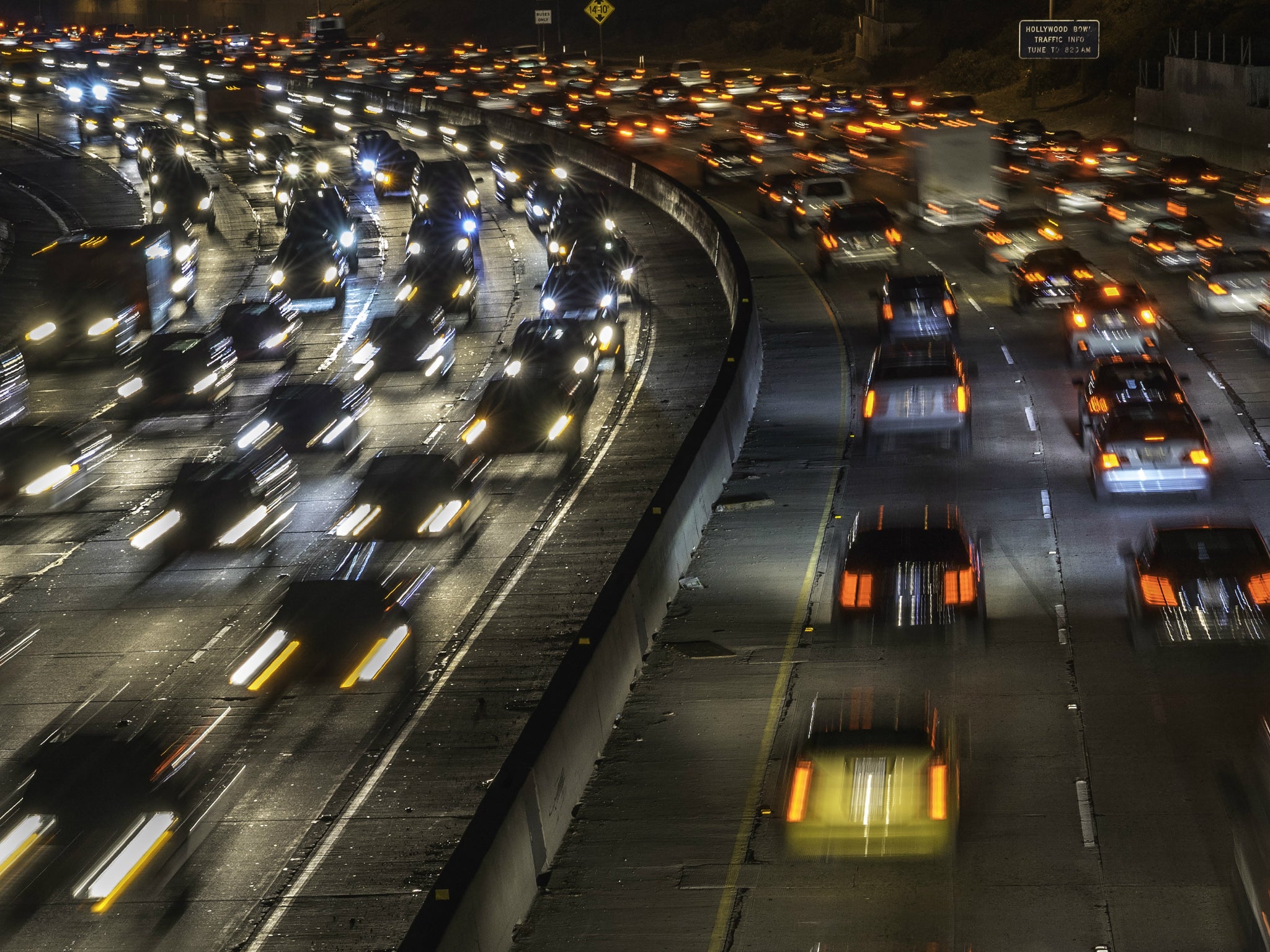Trump moves to roll back car fuel efficiency rules in latest attack on Obama's environmental legacy
The EPA claims the roll back will make American cars more affordable

Donald Trump has taken aim at the environment again by proposing to weaken fuel efficiency standards set by predecessor Barack Obama for cars and trucks - setting up a legal showdown with more than a dozen states who have pledged to stop the move.
The new standards would roll back of the tougher gas mileage requirements Mr Obama had enacted which were expected to go into effect in 2020. Nineteen states and Washington DC immediately released a statement pledging to take to the courts, arguing that the US has an obligation to protect the environment for future generations
The Trump administration said it also wants to revoke states’ authority to set their own mileage standards separate to the federal ones. California has already set stricter rules than those suggested by the government and has been followed by a number of other staes.
“We are prepared to go to court to put the brakes on this reckless and illegal plan,” the coalition of states' attorneys general opposing in the move, led by Massachusetts Maura Healey, said in a statement. The states that have adopted California's emission rules together make up about one third of the U.S. auto market.
Previously, 17 states including California filed a lawsuit in May against the Environmental Protection Agency (EPA), who Obama-era standards were "not appropriate".
The new proposal from the US Transportation Department and the EPA would freeze fuel efficiency standards at 2020 levels through 2026, and require dramatically fewer electric vehicles as more people continue to drive gasoline-powered vehicles.
The EPA said in a statement that relaxing mileage standards in the years ahead would give “the American people greater access to safer, more affordable vehicles that are cleaner for the environment.”
Public comment must now be sought on the proposal and a range of others, including leaving the tighter, Obama administration fuel standards in place. That process will likely take months, with further possible delays caused by legal cases.
The move is just the latest in a string of policy changes to dismantle Mr Obama's climate legacy including beginning the US withdrawal from the global Paris Agreement on climate change and repealing the Clean Power Plan, which would have reduced power plants’ carbon emissions by 2030 to a level 32 per cent lower than they were in 2005.

Mr Trump’s proposal would also negate any efforts to curb tailpipe emissions, in another policy to dismantle legislation aimed at fighting the effects of climate change.
Mr Obama’s standards called for car manufacturers to make a fleet of vehicles averaging 51.4 miles per gallon by 2025.
The Trump administration is arguing that would drive up the prices of vehicles, limiting sales within the US of new vehicles so halting the Obama-era standards before they go into place would save money and help automakers.
“We are delivering on President Trump’s promise to the American public that his administration would address and fix the current fuel economy and greenhouse gas emissions standards,” acting director of the EPA Andrew Wheeler said in a statement.
But, environmental groups do not feel it is a “fix” at all.
“There is simply no good reason -- economic, health, technological or otherwise -- for the Trump Administration to halt progress on vehicle emission standards that the automobile industry agreed to in 2012,” Dan Lashof, the US Director of the World Resources Institute said.
“Rather than spur investments to meet the growing global demand for cleaner, more efficient vehicles, this proposal will lead to years of litigation and uncertainty, putting American manufacturers at a competitive disadvantage,” Mr Lashof said.
Paul Cort, a lawyer with environmental charity Earth Justice estimated in a statement: "By 2030, the pollution equivalent of this rollback will be like firing up 30 coal power plants".
He called the proposed, lower fuel efficiency standards "a boon" for the oil and gas industry.
The Trump administration said the freeze would boost US oil consumption by about 500,000 barrels of oil a day by the 2030s, and argued it would prevent up to 1,000 traffic fatalities per year by reducing the price of new vehicles and so prompting people to buy newer, safer vehicles more quickly.
Experts have also said the move to limit states' abilities to set their own standards is counter to the Trump administration's ethos of protecting states' rights in all other policy matters - like election security, abortion, and taxes.
Join our commenting forum
Join thought-provoking conversations, follow other Independent readers and see their replies
Comments
Bookmark popover
Removed from bookmarks